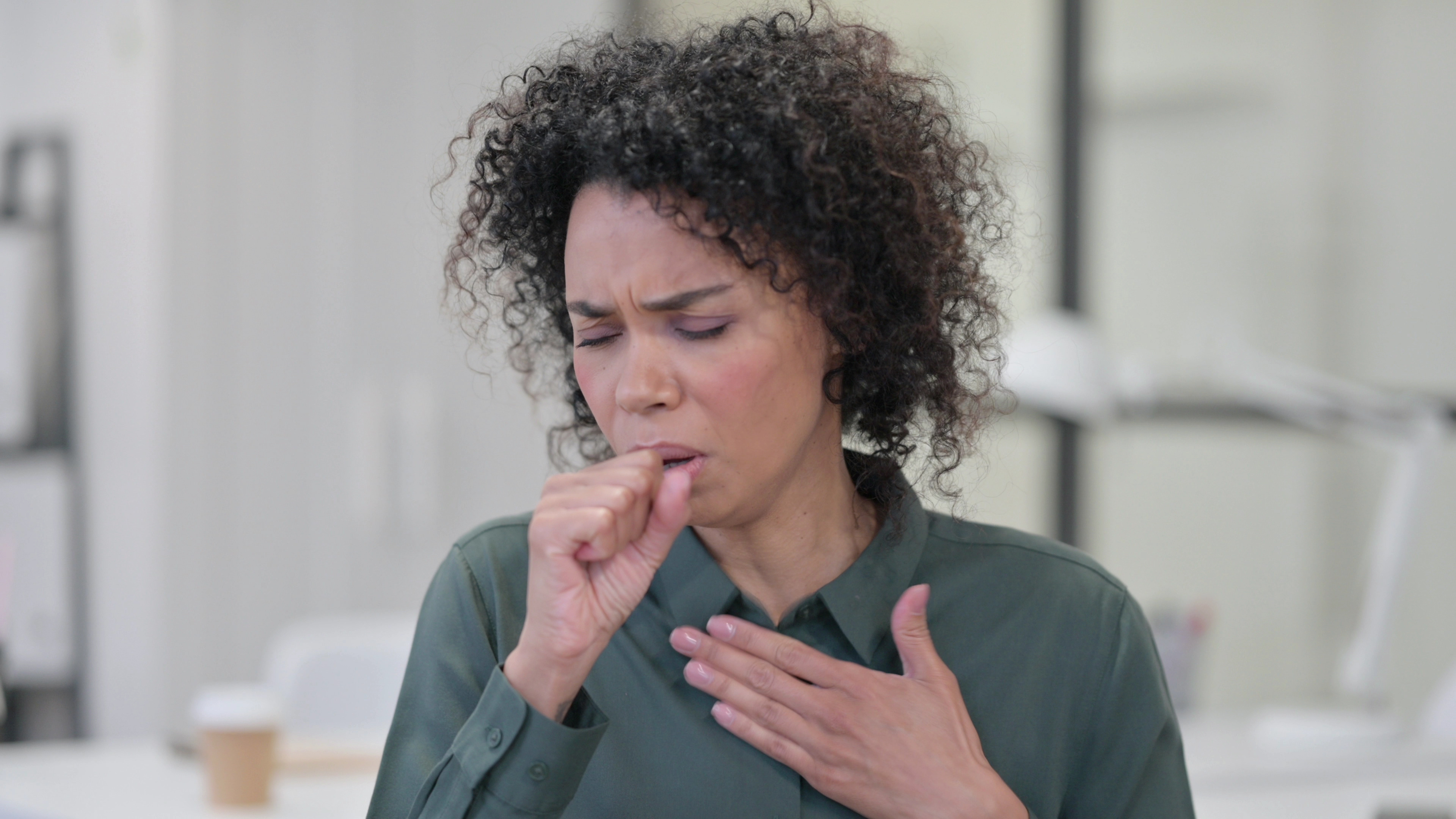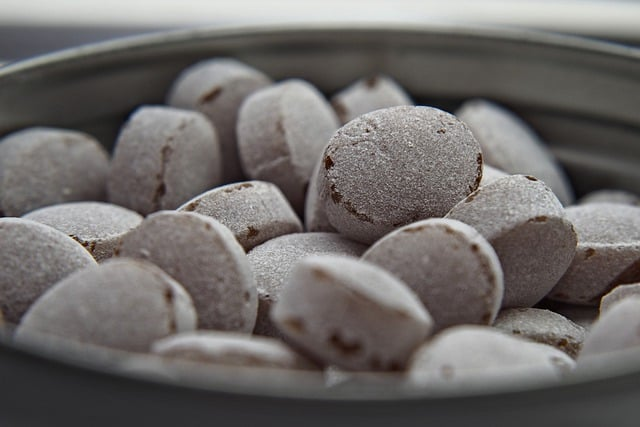Post Nasal Drip: Symptoms, Causes, Treatment Options & More
Managing Post Nasal Drip in Punta Gorda: A Comprehensive Guide
Post nasal drip is a common condition characterized by excessive mucus production or difficulties in clearing mucus, leading to throat discomfort and other symptoms. In the unique climate of Punta Gorda, Florida, which boasts a humid subtropical environment, these symptoms can be particularly pronounced. This Throat Clearing blog post aims to explore the symptoms of post nasal drip, along with its causes, and provide effective treatment options suitable for those living in Punta Gorda.
-
Understanding Post Nasal Drip
Post nasal drip involves the excessive accumulation of mucus in the throat and nasal passages, which can cause irritation. Knowing how to identify and manage this condition is crucial for comfort and health.
-
Symptoms to Watch For
The symptoms of post nasal drip include:
- Throat itchiness and discomfort
- Frequent need to clear the throat
- Coughing
- Hoarseness
- Nausea
- Bad breath Recognizing these signs early can help in effectively managing the condition.
-
Treatment Options
Treatment strategies may involve over-the-counter medications, home remedies, and lifestyle changes to alleviate the symptoms and address the root causes of post nasal drip.
Causes and Triggers in Punta Gorda
The causes of post nasal drip range from allergies to sinus infections, with environmental factors playing a significant role. In Punta Gorda, the humid air and seasonal allergens such as pollen and mold can trigger or worsen the symptoms. Understanding local environmental factors is essential for residents to effectively manage their condition.
Practical Tips for Residents of Punta Gorda
- Stay Hydrated: Keeping hydrated is particularly important in humid climates to help thin mucus, making it easier to clear.
- Use Saline Sprays: Saline nasal sprays can moisten the nasal passages and help alleviate the symptoms of post nasal drip.
- Control Indoor Humidity: Using a dehumidifier in your home can help reduce excess moisture in the air, minimizing throat irritation and mucus production.
- Avoid Irritants: Smoke, strong perfumes, and other pollutants can worsen post nasal drip symptoms. Residents should minimize exposure to these irritants.
- Seek Allergy Treatment: Considering the high prevalence of allergies in humid regions, consulting with an allergist for appropriate allergy management can be beneficial.
Next Steps:
Managing post nasal drip in Punta Gorda requires a combination of understanding local environmental challenges and applying effective treatments. By staying hydrated, using dehumidifiers, and avoiding irritants, residents can significantly improve their quality of life. Additionally, for persistent symptoms, consulting healthcare providers for tailored advice is recommended.
This blog post provides practical advice tailored to the specific needs and environmental conditions of Punta Gorda, helping locals effectively manage the symptoms and underlying causes of post nasal drip.
- Postnasal drip is a common condition that occurs when there is excess mucus production.
- Common symptoms of postnasal drip include frequent throat clearing or swallowing, cough, hoarseness, sore throat, nausea, and bad breath.
- Postnasal drip typically clears on its own, but there are over-the-counter and prescription medications that can help, as well as natural home remedies. See a medical doctor if your symptoms last longer than 10 days or are accompanied by a fever or mucus that has a foul odor.
Mucus Secretions: The Foundation of Post Nasal Drip
Everyone has experienced postnasal drip, but have you ever wondered why it occurs or how it is created? We have the answer for you.
The production of mucus by the nose, throat, and sinuses is a constant process that prevents the airways from drying out. Mucus has been found to serve an essential purpose in the human respiratory system. With its sticky surface, mucus can trap harmful particles such as germs, allergens, and dust, preventing their bodily entry. In addition, research has revealed that mucus contains abundant antiviral and antibacterial proteins that actively combat potential infections.
Typically, mucus goes unnoticed as it mixes with saliva throughout the day, and a person either swallows it or blows it out of their nose. However, excessive or thick production of mucus can cause it to become more noticeable, resulting in a sensation of the substance dripping down the back of the throat, which is medically referred to as a postnasal drip.
Postnasal Drip Symptoms
Common symptoms of postnasal drip include:
- Excess mucus in the throat
- Frequent throat clearing or swallowing
- A sore throat that may feel scratchy
- Nausea due to swallowing the excess mucus
- A cough, particularly if it worsens at night when lying down. Postnasal drip is often called “upper airway cough syndrome.”
- Halitosis (bad breath)
- Runny nose
- Hoarseness
- A burning sensation in your throat
- The feeling of a lump in the back of your throat
- Watery eyes

Causes of Post Nasal Drip
Postnasal drip can occur due to changes that cause mucus to thicken or become excessive.
Allergies are one of the most common causes of postnasal drip. For example, seasonal allergies triggered by pollen release from plants can cause the body to produce extra mucus to eliminate the pollen spores.
Cold weather or dry air can also lead to postnasal drip. Breathing in cold or dry air can irritate the nose and throat, prompting the body to create mucus to humidify and warm the passages, thus easing the irritation. Additionally, cold weather has links to viral infections such as the flu, sinus infections, and the common cold, all of which can cause symptoms of postnasal drip.
Furthermore, the body responds to invading germs by creating more mucus to flush them out. Although uncomfortable, postnasal drip shows the body’s efforts to stay healthy.
Other potential causes of post nasal drip include:
- Eating spicy foods
- Pregnancy
- Acid reflux or gastroesophageal reflux disease (GERD)
- Allergic rhinitis (an inflammation of the inside of the nose due to allergens, like pollen and dust)
- Sinusitis (inflammation of the mucous membranes that line the sinuses due to viral or bacterial infection, fungi, or allergies.)
- Chronic respiratory conditions, like chronic obstructive pulmonary disease and emphysema
- Specific medications, particularly some birth control prescription medications and those for blood pressure.
- Smoking or breathing secondhand smoke
- Hormone fluctuations
- Consuming dairy products
- Deviated septum, a condition that occurs when the bone that separates the nostrils is off-center
- Swallowing problems

How to Treat Post Nasal Drip
There are several ways to relieve post nasal drip. You can employ over-the-counter or home remedies to reduce postnasal drip symptoms or a combination. We’ll cover common over-the-counter medicines first.
Over-the-Counter Treatment Options
Specific over-the-counter (OTC) treatments can help if you have a sore throat, cough, or congestion along with postnasal drip. These treatments include:
- Cough lozenges to soothe a sore throat
- Acetaminophen products, like Tylenol, to ease sore throat pain and reduce fever
- Antihistamines to reduce allergy symptoms. Popular antihistamines include Benadryl and Claritin.
- Sudafed to ease congestions
- Robitussin Expectorant or Mucinex to loosen mucus
- Medicated nasal sprays, such as Afrin, to clear congested nasal passages
- Saline nasal spray to alleviate nasal congestion
- Nasal irrigation to flush out nasal passages. A neti pot is a popular nasal irrigation tool.
- Vapor rub applied to the chest, back, or throat to help clear congestion. A famous brand is Vicks VapoRub.
- Allergy shots to reduce your immune system’s adverse reaction to allergens
Prescription Medications
Postnasal drip can be treated with prescription medications that target the underlying cause.
Atrovent (ipratropium bromide) or a steroid may be prescribed for those with persistent or asthma-related symptoms. Antibiotics or antifungals may be necessary if the cause is a bacterial or fungal respiratory infection.
For GERD, a treatment plan involving medication and lifestyle changes is necessary. This may include avoiding fatty and spicy foods, taking acid-reducing medication, and sleeping with your head elevated (1).
Surgical Solutions
Surgery may be a solution if your postnasal drip is challenging to treat or caused by anatomical issues.
Surgeries can relieve postnasal drip caused by sinus issues, a deviated septum (septoplasty or submucosal resection), and nasal blockages.
Natural Home Remedies
There are some general lifestyle tips you can try to make dealing with postnasal drip easier, regardless of the cause.
- Drink lots of water. Water lubricates your throat and thins the mucus secretions. It also helps prevent dehydration.
- Rinse your nasal passages with a neti pot or other nasal irrigation tool, such as sinus rinses.
- Use a cool-mist humidifier at night while you sleep to moisturize your mouth, throat, and nasal passages.
- Sleep with your head slightly elevated to prevent mucus from gathering at the back of your throat
- Drink warm liquids, like tea or just plain water. You can also sip a mug of chicken broth or soup to help thin mucus.
- Use a HEPA vacuum to trap dust particles, which can help prevent an allergic reaction and resulting postnatal drip.
- Change air filters on your heating and air conditioning system regularly.
- Add a few drops of eucalyptus or peppermint essential oil to a diffuser to help relieve congestion.
- Use dust mite mattress covers and pillowcases to keep dust mites at bay.
When to Call a Doctor
Make an appointment with your doctor if you experience:
- Symptoms lasting at least 10 days
- Excess mucus that does not diminish despite using over-the-counter, prescription, and/or natural home remedies.
- Foul-smelling mucus
- If your symptoms accompany a high fever
- Trouble swallowing or breathing
- Shortness of breath
- Vomiting
- Ear pain
The symptoms above could indicate a bacterial infection that may require antibiotics. However, if it’s a viral infection, antibiotics won’t be effective, and a doctor won’t prescribe them.
In some cases, healthcare providers may suggest tests to determine the cause of the symptoms, which could include stomach acid reflux or nasal polyps. A steroid nasal spray may also be recommended for individuals with persistent allergies.
Summary
Postnasal drip is a common condition that can cause discomfort and irritation in the throat and difficulty swallowing. It is often triggered by environmental factors such as allergies, cold weather, or dry air.
Although it usually clears up without medication, antihistamines and decongestants can be helpful for those with viral infections or allergies.
If you experience persistent postnasal drip or other symptoms, it is best to consult with your doctor for proper diagnosis and treatment.
Frequently Asked Questions
What is post-nasal drip a symptom of?
Postnasal drip is a common symptom of cold, sinusitis, seasonal allergies, and cold weather or dry air. It can also be caused by eating spicy foods, eating dairy products, acid reflux, chronic respiratory conditions, certain medications, and swallowing problems.
What medication is used to dry up sinus drainage?
Various medications can aid in reducing sinus drainage in the throat. Decongestants work by reducing the sinuses’ swelling, thus lessening mucus production. Antihistamines can help reduce inflammation caused by allergies. Expectorants help to thin out the mucus, making it less sticky and easier to expel.
What is the quickest way to get rid of post nasal drip?
- Drink lots of water.
- Rinse your nasal passages with a neti pot.
- Use a cool-mist humidifier at night while you sleep to moisturize your mouth, throat, and nasal passages.
- Sleep with your head slightly elevated to prevent mucus from gathering at the back of your throat.
- Drink warm liquids, such as tea, or chicken soup, to help thin mucus
- Add a few drops of eucalyptus or peppermint essential oil to a diffuser to help relieve congestion.
Does Mucinex help stop post nasal drip?
If you’re suffering from excess mucus, drugs like Mucinex and Robitussin, which contain guaifenesin, may be helpful. Another option is to use a neti pot to rinse your nasal passages and clear away any excess mucus. Also, a humidifier can help moisten the air and alleviate your symptoms.
1- https://bmcprimcare.biomedcentral.com/articles/10.1186/s12875-021-01369-0
Dr. Matthew Olesiak, MD, is the Chief Medical Director at SANESolution, a renowned wellness technology company dedicated to providing evidence-based solutions for optimal living. Dr. Olesiak earned his medical degree from the prestigious Jagiellonian University Medical College in Kraków, Poland, where he developed a strong foundation in medicine.





